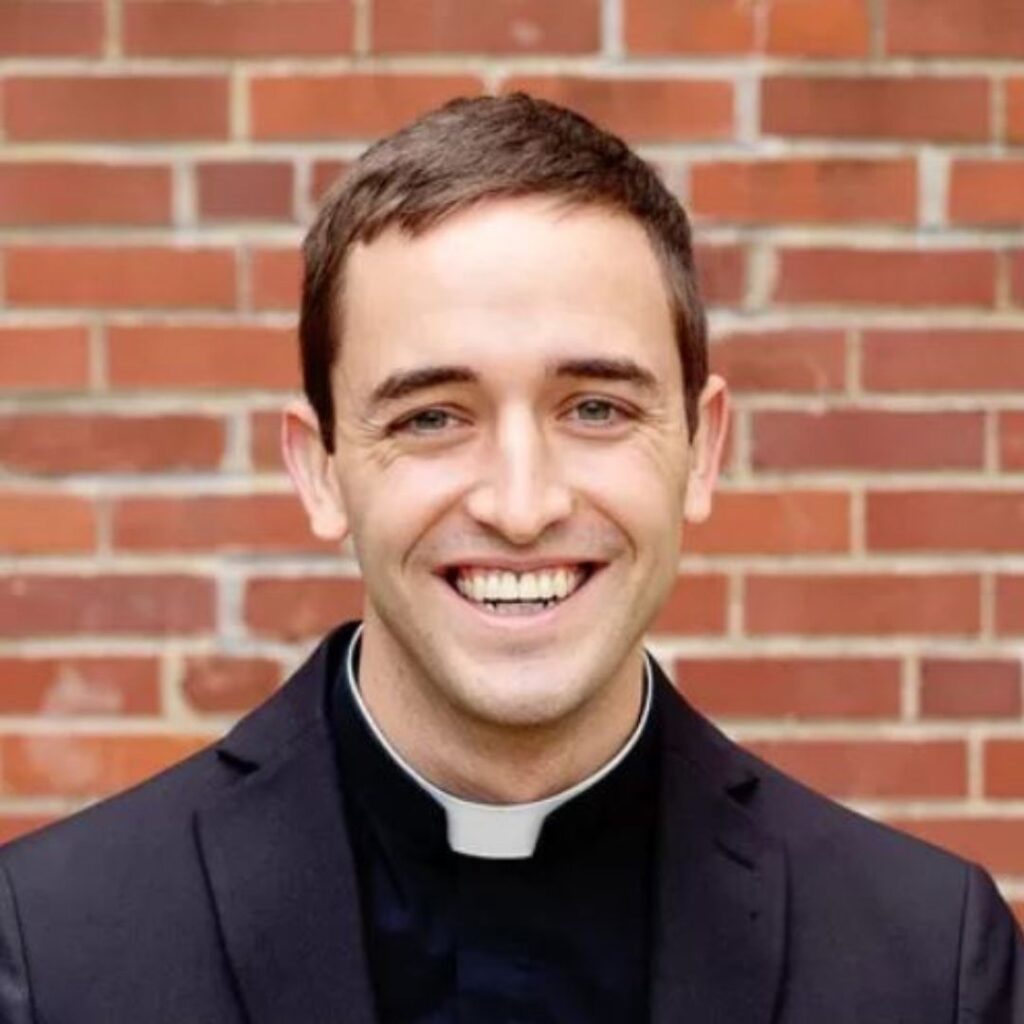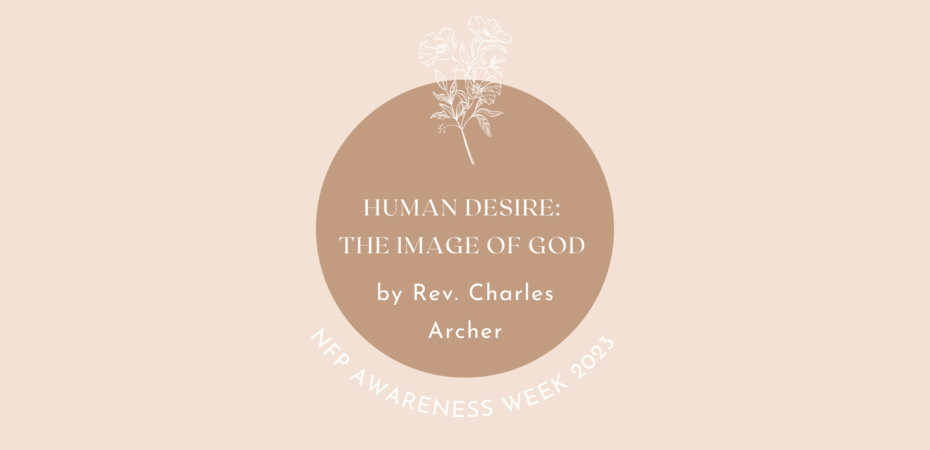
By Rev. Charlie Archer
Poetry is different. It is not a newspaper article to skim or an easy-reading novel. It invites reflection and questioning – what is meant by the terms ‘power’, ‘strength’, and ‘glory’? How are the experiences of married men and women similar and different than those who are celibate? When confronted with mystery, poetry can open the door to deeper questions and deeper reflection. I invite you to read these poems out loud – perhaps under your breath, if you’re at work! Enter into the rhythm and cadence: reflect if this is true to your experience. Below, after the poem, I have a short explanation to serve as a guide to deeper comprehension.
Man
Strength lies in the roots of his arms,
Yet power lies deeper.
Together, the glory of man.Power generated strength
And power pledges strength’s protection
To Her and those of Her,
The focal point of the glory of man,
Power and strength given together.The body, self-mastered, concealed
Not for shame, but perilous, beautiful glory –
The veil of the sacred.Power so great it is concealed even from man himself,
And strength hardly more revealed.
The deep restless, yearning strength
Finds peace as he contemplates the gift:
And is content.The gift-sacrifice of his seed becomes
The pledge of his life and glory.
His glory becomes hers.Woman
Receiving his gift-sacrifice,
She not only receives vulnerability,
And his pledge of strength,
But also his gift
That becomes life itself.Life in its pain, heartbreak, exhaustion.
Life nourished in quiet joy.And this life is her pledge, that,
If given, is given unto him.For him, she is the doorway to life –
Its complexity, passion, & wonder –
And her feminine strength calls him
To walk pathways he would never have dared to trod.The hidden recesses of a father’s heart
And formed in the mother’s womb.Strength for strength,
Power for power;
In the glory of the two,
The glory of the Three stands revealed.Coelibatus, Latin for “One who lives alone”
Man
The gift-sacrifice of not-seed
Is the pathway in,
Deeper, beyond her,
His glory becomes “My body, given for you” –
In each moment his glorious energy is
Loving self-gift to the unlovable.Within him, the ache of solitude echoes
The Master’s words: I thirst for moreThe “Chalice of my blood” receives,
In being exposed,
The wounded life of the world.The gift-strength of body
The passion-power of blood.
Each morning, through him,
The nuptials of Eternity
On earth.Each day, through him,
The body and blood given
For the life of the world.Woman
In she who receives-not seed
A vast, fruitful emptiness forms.Feminine power yet nourishes
— intrinsically so –
Not child-delighting-the-eye,
With every contour known,
But power deeper, deeper goes.Power yearning to receive and to delight
Deepens her contemplation – seeing more than most:
In the beauty of each creature she receives the Beauty that is Him.In her gaze
Heart-life springs forth as He is formed
Anew in the barren cave.Her deep strength breaks hearts;
Her veiled power begets glory.Under her gaze,
Life Himself breaks forth from concealment
As new-hearts shine with
The love of the Bridegroom.
When struggling with Shakespeare in high-school, I learned to love the SparkNotes website – it would break down the major themes and terms within Shakespeare’s plays and poetry. I am quite certain that this poem is not analyzed on SparkNotes, nor do I expect it to be anytime soon! For those who want the short-cut to the ideas behind the poem, I will provide a brief summary and point to the major themes.
Power refers to the generative power of man and woman respectively.
Strength refers to the unique strengths of man and woman. The unique forms of masculine and feminine strength develop as their bodies mature. At the natural level, man’s strength is ordered to making a gift of self to the woman, and the woman’s strength is ordered to nurturing life and inviting man into the deeper mystery of life.
Glory comes about with the integration of strength and power; when a person experiences harmony within his or her body between desire and living reality.
The Image of God comes from Genesis 1:27. The Church Father, St. Irenaeus, famously wrote, “The glory of God is man fully alive. The glory of man is the worship of God.” This poem is about how the glory of man images the glory of God. This image occurs naturally in marriage “the glory of the Three” can refer to the Father, Mother, Child, as well as to the Holy Trinity. Yet the longing of the celibate man and woman enter more directly into the mystery.
Gaze and Seeing: In the section on the celibate woman, the terms ‘seeing’, ‘contemplation’, and ‘gaze’ form a theme of the woman’s deeper perception of the world. In not being fulfilled in her natural desire to receive life through marriage, her heart is opened to spiritually ‘see’ more deeply the beauty of all life as coming from her true Spouse, the Lord. This spiritual sight has the power to break hardened hearts and nurture the true life of God within those who she encounters in love.
Fr. Charlie Archer is the associate pastor at St. Peter Parish in Kirkwood. He grew up in St. Margaret Mary Alacoque and attended the University of Dallas before entering Kenrick-Glennon Seminary, being ordained in 2021.


THANK YOU, Father Charlie, for this terrific poem and reflection. Oh, that more people would come to understand these beautiful truths!
Happy you enjoyed it! We are so thankful for Fr. Charlie and are honored to share his wisdom with our community.